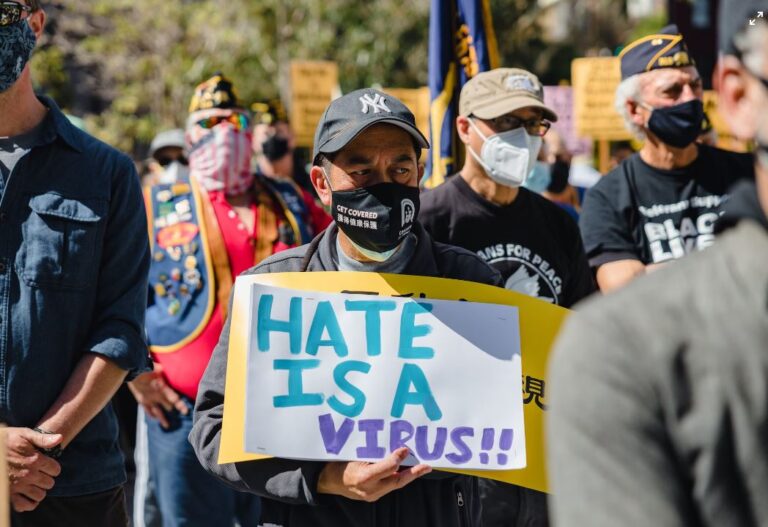
By Jerry Wu, AsAmNews Intern
The United States Commission on Civil Rights released a report Tuesday examining the quick rise of Asian hate crimes since the pandemic and what the federal government has done to limit those bias incidents.
From 2020 to 2021, the number of anti-Asian reported incidents nearly tripled from 279 to 746, according to the FBI.
The Commission eventually launched its investigation in 2022, assessing the surge of anti-Asian crime and discrimination in the country for the second time in its 65-year history.
The commissioners listened to several testimonies from academic and policy experts, law enforcement agencies and community members to collect research and better understand the sprawling effects of racism toward Asian Americans.
The Asian Americans Advancing Justice, a nonprofit and civil rights organization, provided its testimony and felt that their views were heard by the Commission.
“It was good to have a focus on these matters and for different people to offer their perspectives on what the slice of the community that they represent has been facing and what improvements need to be made,” said Marita Etcubanez, Vice President of Strategic Initiatives for Advancing Justice/AAJC.
The report assessed three main components: national data on the number of Asian American hate crimes, local and state prevention practices and federal efforts to establish more transparency over crime-data reporting and legislative strategies to prevent future offenses.
Investigators also probed into three separate states, Texas, California and New York, with large Asian populations that experienced increasing hate crimes over the pandemic, according to the report.
In a statement, U.S. Rep. Grace Meng from Queens, New York applauded the work carried out by the Commission.
“I am deeply appreciative to the U.S. Commission on Civil Rights (USCCR) for examining the rise in anti-Asian racism for just the second time in its history, and for being responsive to the rise in anti-Asian hate that our community experienced when the COVID-19 pandemic started,” she said.
Many groups like the Sikh American Legal Defense and Education Fund, which promotes the civil rights of Asian Americans, acknowledge the report as a step in the right direction.
“I’m glad to see that they are taking this seriously and addressing this issue and looking at ways we can get more effective in combating hate crimes against the Asian American community,” said SALDEF Executive Director Kiran Kaur Gill.
Despite recording a peak in anti-Asian hate crimes nationwide, the report pointed out that due to the lack of an universal data collection system, any comprehensive data for understanding its true magnitude is clouded by uncertainty.
Many Asian Americans may also harbor mistrust in the criminal justice system, whether attributed to language barriers or lack of hate crime prosecutors, the Commission added.
Looking forward, Gill still calls on the need for change.
“There’s just a lot more work to be done. These sorts of issues have come up over the period that Asian Americans have been in the United States,” she said. “Hatred is stoked, and our communities are on the receiving end of a lot of the actions that are generated from hate-filled rhetoric.”
The report also offers a series of recommendations to manage and prevent hate crimes, primarily through the improvement of data collection of these offenses. One proposal is to have the FBI require local law enforcement agencies to submit crime data. These agencies are also encouraged to provide language assistance programs to individuals in need and engage in hate crime training and community engagements.
(Correction: An earlier version of this story misidentified SALDEF. We apologize for our error)
AsAmNews is published by the non-profit, Asian American Media Inc. Follow us on Facebook, X, Instagram, TikTok and YouTube. Please consider making a tax-deductible donation to support our efforts to produce diverse content about the AAPI communities. We are supported in part by funding provided by the State of California, administered by the California State Library in partnership with the California Department of Social Services and the California Commission on Asian and Pacific Islander American Affairs as part of the Stop the Hate program. To report a hate incident or hate crime and get support, go to CA vs Hate.